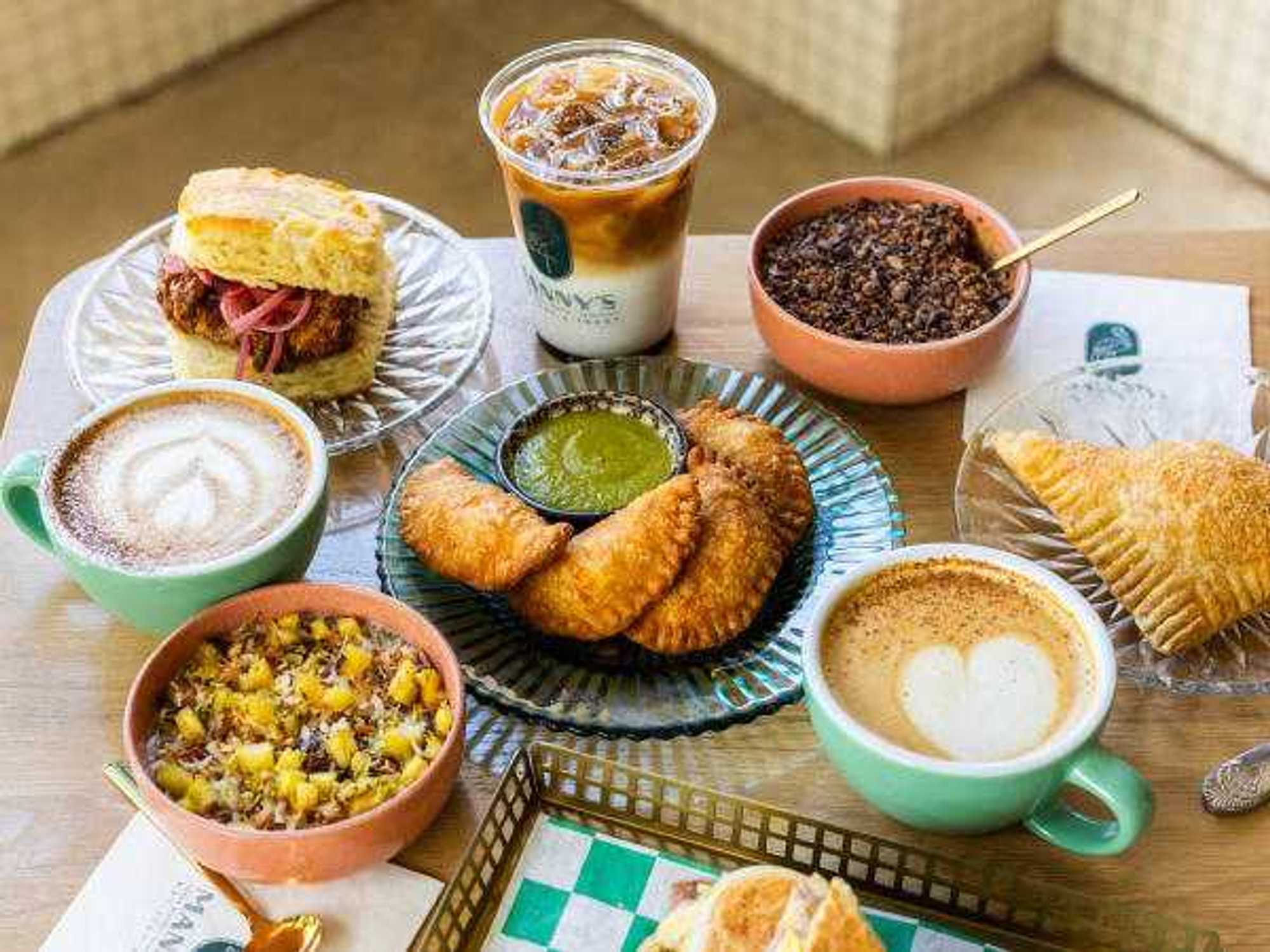What’s cookin’
Austin City Council picks 24 Diner and Parkside over Threadgill’s in airport food fight

A food fight at Austin City Hall has ended. On December 14, City Council members favored a restaurant plan for Austin-Bergstrom International Airport that includes local favorites 24 Diner and Parkside over a competing restaurant plan anchored by Austin fixture Threadgill’s.
Clearly conflicted over the closely matched projects, City Council members ultimately came down on the side of a proposal including locations for 24 Diner and Parkside, as well as a food hall highlighted by Torchy’s Tacos, Noble Sandwich Co., and other local eateries. That proposal was submitted by HMS Host, a provider of food services at more than 50 airports.
In scoring routinely done for consideration of city contracts, HMS Host’s bid barely nudged aside one from rival Paradies Lagardère, an operator of stores and restaurants at nearly 100 airports. Threadgill’s was the centerpiece of the bid from Paradies Lagardère.
City staffers and the Airport Advisory Commission had recommended the HMS Host bid, and council members were scheduled to approve it at their December 7 meeting. However, after concerns were raised by Threadgill proprietor Eddie Wilson, the council put off their decision until December 14.
Despite pleas from supporters of the Paradies Lagardère bid, council members ended up voting for HMS Host, meaning Threadgill’s won’t be opening an airport outpost.
“This is a really, really, really hard call for me,” Mayor Steve Adler said.
Although Adler said he backed Threadgill’s and the Paradies Lagardère bid, he lacked enough support from fellow council members to reject the HMS Host proposal. Adler wound up joining other members in unanimously approving the HMS Host deal.
Council Member Jimmy Flannigan said he had trouble with the notion of reversing course to ditch HMS Host and endorse Paradies Lagardère.
“I don’t think it’s appropriate or right to change vendors at the last second, even if the scores are close,” Flannigan said.
Several council members bemoaned the lack of flexibility with the city’s bidding program for vendors and questioned whether the process should be changed to take into account factors like Threadgill’s long history in Austin.
With the council’s blessing, HMS Host will move ahead with the 24 Diner and Parkside locations, along with a food hall called Austin Kitchen.
Airport spokesman Jim Halbrook tells CultureMap that Austin Kitchen will be located in the nine-gate expansion under construction at the east end of ABIA’s main terminal.
The 24 Diner and Parkside locations and the food hall are expected to open in 2019, according to Halbrook. Contracts for the project still must be finalized.
Aside from Austin-based Torchy’s and Burnet Road farm-to-table fixture Noble Sandwich, the ABIA food hall will include:
- Hardie’s Fresh Foods, a Texas-based supplier of fruits and vegetables.
- Sushi A-Go-Go, sister restaurant to Airport Boulevard's Komé Sushi Kitchen.
- Jugo, which operates a healthy grab-and-go concept at 603 Brazos St.
- Austin Beerworks, a craft brewery in North Austin that will debut an airport location dubbed Beer Drop.
As with many other food halls, Austin Kitchen won’t have full-fledged establishments for food and beverage purveyors. Literally and figuratively, travelers will get just a taste of the establishments’ offerings.
Austin Kitchen will be the fourth food hall on the table in Austin. Two food halls are set for downtown Austin — one that’s set to open January 18 and another that remains in the planning stages. A third food hall is scheduled to open in late January near Lakeline Mall.
Chances are, the development of food halls in the Austin area won’t stop there, as this trend is sizzling across the country. According to commercial real estate company Cushman & Wakefield, about 150 food halls are operating in the U.S., with that number expected to rise to 250 by 2019.
“No other retail category has generated as much aggressive expansion over the past few years as food-related retail — and arguably, there is no hotter trend within that category than food halls,” Garrick Brown, vice president of retail research for the Americas at Cushman & Wakefield, said in a 2016 release.
Not everyone is giddy about the food hall phenomenon, however. A recent report in The New Yorker magazine noted that some restaurateurs have soured on the concept. The article describes the potential of American food halls as “inflated,” with real estate developers often benefiting at the expense of local restaurant owners.
“In contrast to the food court, with its Auntie Anne’s and Panda Express, the food hall eschews big chains in favor of local, artisanal purveyors, dazzling the visitor with a vision of a thriving economy of small businesses operating side by side,” The New Yorker’s Elizabeth Dunn wrote. “It is tempting, therefore, to see the proliferation of the food hall as a victory for the little guy. This is not entirely accurate.”
